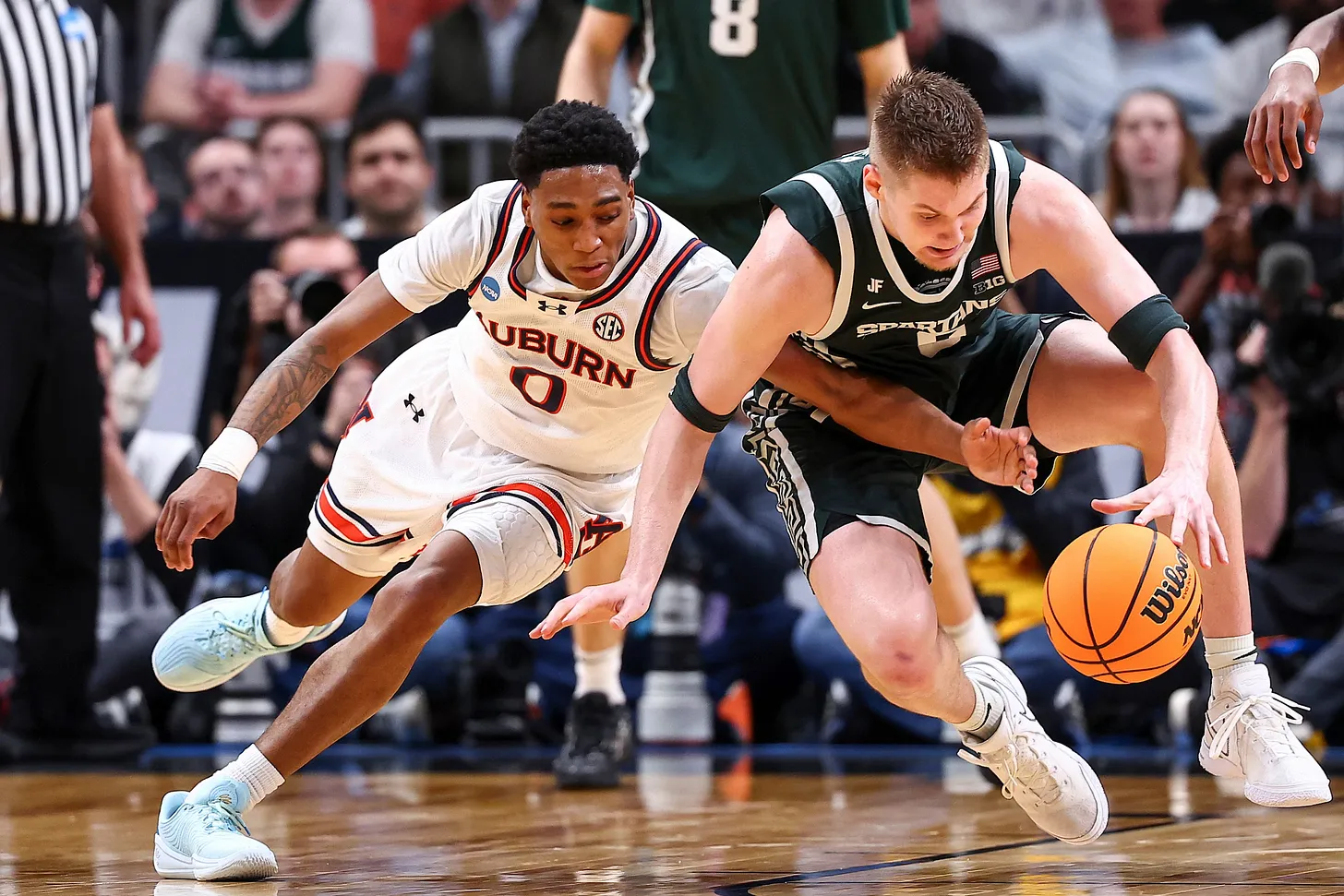Auburn basketball’s 2024–25 season marked a transformative era for the program, highlighted by a defensive resurgence that propelled the Tigers to a 32–6 record and a Final Four appearance. Under the guidance of head coach Bruce Pearl, Auburn’s defense evolved into a formidable force, characterized by disciplined execution, strategic adjustments, and a collective commitment to excellence.
Central to this defensive metamorphosis was the team’s emphasis on rebounding. Auburn significantly improved its defensive rebounding, allowing opponents to secure offensive boards on only 25.8% of missed shots—a substantial improvement from previous seasons. This enhancement was a collective effort, with players like Johni Broome, Jaylin Williams, Denver Jones, and others contributing to a more robust presence on the glass. Broome’s defensive rebounding rate increased from 22.8% to 27.5%, while Williams achieved a career-high 16.4%, and Jones nearly reached 10%, a notable rise for a guard
This improvement in rebounding allowed Auburn to establish a more consistent and effective defensive strategy. By limiting second-chance opportunities for opponents, the Tigers could set up their defense more effectively and reduce the number of fast-break points allowed. This shift was particularly evident in matchups against high-scoring teams, where Auburn’s ability to control the boards translated into fewer transition opportunities for opponents.
The team’s defensive prowess was further exemplified by individual performances. Denver Jones, in his second season with Auburn, emerged as a defensive stalwart. His tenacious on-ball defense and ability to disrupt passing lanes earned him recognition as a semifinalist for the Naismith Defensive Player of the Year Award . Jones’ defensive acumen complemented the efforts of other key players, creating a cohesive and aggressive defensive unit
Auburn’s defensive strategy also involved strategic adjustments during the season. Following a loss to Duke, where the Tigers allowed 16 fast-break points, Coach Pearl emphasized the importance of transition defense. The coaching staff focused on improving defensive positioning and communication to prevent opponents from exploiting fast-break opportunities. This emphasis led to noticeable improvements in subsequent games, as Auburn became more adept at halting opposing fast breaks and maintaining defensive integrity .
The Tigers’ defensive identity was not solely reliant on individual talent but was a product of a collective mindset. Players embraced the team’s defensive principles, understanding that success hinged on communication, effort, and a shared commitment to stopping opponents. This unity was evident in the team’s ability to execute defensive schemes effectively, regardless of the opponent’s offensive prowess.
Auburn’s defensive excellence was instrumental in its success throughout the season. The Tigers’ ability to stifle opponents’ offenses allowed them to control the tempo of games and dictate the pace. This control was crucial in high-pressure situations, such as the NCAA tournament, where defensive stops often determine the outcome of close contests. Auburn’s defense provided the foundation for its deep tournament run, culminating in a Final Four appearanc
In summary, Auburn basketball’s 2024–25 season was defined by a defensive transformation that underscored the program’s growth and resilience. Through a combination of improved rebounding, individual defensive performances, strategic adjustments, and a collective commitment to defensive excellence, the Tigers established themselves as one of the premier defensive teams in college basketball. This defensive identity not only contributed to their on-court success but also set a new standard for future Auburn teams to aspire to.




